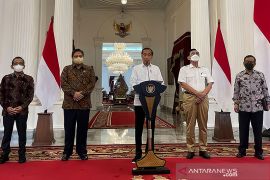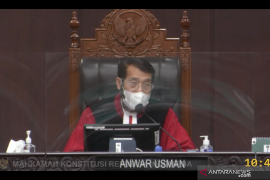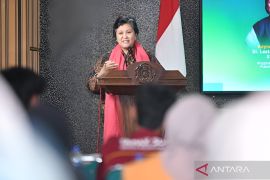"Out there, various propaganda, hoaxes, misinformation, and also disinformation discredit the Job Creation Law. For instance, an issue arose that the district/city minimum wage (UMK) and district/city sectoral minimum wages (UMS) are omitted. It is not true," Soesatyo noted in a statement here on Wednesday.
In the earlier regulation, the severance pay provided to workers had amounted to 32 times the monthly wage. However, merely seven percent of the companies were compliant owing to the major burden they had to bear. Soesatyo believes the earlier regulation created legal uncertainty for workers that were laid off (PHK) and investors.
Related news: Spokesman believes omnibus law on job creation will spur economy
Related news: Omnibus bill on job creation: game changer for whom?
To this end, the MPR chairman remarked that the adjustment of severance pay to 25 times of a worker’s wage was realistic so as not to burden the company.
"In future, companies cannot argue by presenting various reasons for not paying severance pay. The Job Creation Law also contains a new regulation on social protection in the form of job loss insurance/JKP (Article 18). The JKP does not increase the burden on workers since it is intended for upgrading and upskilling and opening up access to employment information for workers facing layoffs," he explained.
Soesatyo clarified that it also not true that the law rules working hours, which is too exploitative and inhuman and eliminates the right to leave. In fact, Article 77, Paragraph 2 of the Job Creation Law regulates work hours at eight hours a day for five working days weekly and as much as seven hours daily for six working days.
"Taking into account that the employment trend in the Industrial Revolution 4.0 era demands flexible working hours according to the agreement between workers and employers, this provision actually makes it easier for workers to use their work hours. They do not need to spend all day at the office but can instead work from home or anywhere," he noted.
Related news: Hartarto: Omnibus law to help Indonesia escape middle-income trap
Related news: Omnibus bill passed into law amid mounting criticism
Translator: Dyah Dwi Astuti, Fardah
Editor: Yuni Arisandy Sinaga
Copyright © ANTARA 2020












